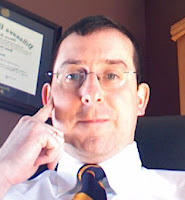In "Imputation, Infusion and Eternal Consequence: A Parable," R.C. Sproul Jr. recently claimed that the parable of the Pharisee and the Publican (St. Luke 18: 9-14) not only supports the Reformed notion of imputation over the Catholic doctrine of infusion, but also shows that those holding the Reformed doctrine of imputation are justified, while those holding the Catholic doctrine of infusion "will spend eternity weeping and gnashing teeth."
Sproul appeals to the Pharisee's use of "Lord, I thank you" as evidence that the Pharisee knows that he needs the grace of God, that the power to make him righteous came from God, and that God deserves all the glory for his obedience to God. The Publican too, notes Sproul, knows that he needs grace from God. Thus, according to Sproul, the difference between the Pharisee and the Publican does not lie in their awareness of the divine origin of grace and righteousness. They both know that grace and righteousness come from God.
According to Sproul, the difference between the Pharisee and the Publican is this: the Pharisee believes that God’s grace has “made him whole” while the Publican knows that he is an unrighteous sinner. Because of this difference, claims Sproul, the Publican will spend eternity walking with God, while the Pharisee will spend eternity weeping and gnashing his teeth. But here’s the kicker: (continue reading)
Sproul appeals to the Pharisee's use of "Lord, I thank you" as evidence that the Pharisee knows that he needs the grace of God, that the power to make him righteous came from God, and that God deserves all the glory for his obedience to God. The Publican too, notes Sproul, knows that he needs grace from God. Thus, according to Sproul, the difference between the Pharisee and the Publican does not lie in their awareness of the divine origin of grace and righteousness. They both know that grace and righteousness come from God.
According to Sproul, the difference between the Pharisee and the Publican is this: the Pharisee believes that God’s grace has “made him whole” while the Publican knows that he is an unrighteous sinner. Because of this difference, claims Sproul, the Publican will spend eternity walking with God, while the Pharisee will spend eternity weeping and gnashing his teeth. But here’s the kicker: (continue reading)











